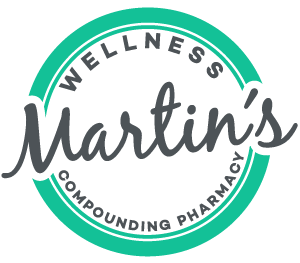Debunking Supplement Myths with Wellness Experts

If there is anything remotely positive about COVID-19’s effect on our society, it could be a renewed interest in wellness practices as people attempt to bolster their immune defenses amid a global pandemic. As a result, the vitamin and supplement industry experienced an unprecedented increase of 12.1% in 2020, and the US market’s revenue share hit $35.6 billion in 2021.
However, despite this increased interest in dietary and wellness supplements, widespread misconceptions continue to dominate vitamin and supplement conversations - causing many to ask: is taking supplements good for you - or not?
In today’s post, we’re providing some answers and uncovering the truth about vitamins by looking at 18 common myths and debunking them with science and subject-related facts. As wellness experts and health professionals, our main priority is always the health and safety of our customers, so let’s get started with Myth #1 regarding FDA regulation within the industry.
Myth #1: Dietary Supplements are not FDA Regulated
Despite this common misconception, the US Food and Drug Administration (FDA) established strict standards for the safety and labeling of dietary supplements, including penalties for failing to adhere to the guidelines, when it passed the Dietary Supplement Health and Education Act1 in 1994. Further industry regulation occurred with the passing of the Food Safety Modernization Act2 in 2011.
Under these laws, the FDA required supplement manufacturers/ingredient suppliers to adhere to the following guidelines:
- • Register with the FDA.
- • Undergo regular inspections of their facilities and get third-party certifications to ensure their supplements meet strict quality control guidelines.
- • Report any consumer complaints about unexpected side effects so that the FDA can track potential issues with supplements.
Furthermore, unlike drugs, supplements are not permitted to be marketed “for the purpose of treating, diagnosing, preventing, and curing diseases” - so health practitioners must regulate their use.
Myth #2: Natural Supplements Must Be Safe
Just because something grows naturally does not mean it’s safe for consumption - take elderberries, for example. The elderberry is safe to consume when cooked; however, the raw (uncooked) elderberries and other parts of the plant contain glycosides that turn into cyanide when consumed.3
However, aside from this extreme example, there is another reason why myth #2 is untrue - and potentially dangerous. Basically, “natural” supplements can interact with both prescription and over-the-counter medications and cause adverse health effects. That’s why it's essential to consult your doctor and/or pharmacist before adding new vitamins or dietary supplements to your regimen.
Myth #3: Probiotics & Prebiotics Benefit Everyone
There’s no doubt that gut bacteria are essential to good health. However, the marketing claims around these supplements are too often overstated. In fact, there is slim scientific evidence to support claims that probiotic or prebiotic supplements can benefit overall health. Rather, studies have shown that these supplements can address a few specific conditions4, such as reducing diarrhea associated with some antibiotics and easing certain symptoms of irritable bowel syndrome (IBS).
Myth #4: Supplements Can Replace Diet Requirements
No matter how convincing marketing claims can be, there is no substitute for the many benefits a healthy diet rich in a variety of whole foods can provide. Rather than take this myth as fact, ask this instead: does your body absorb vitamin supplements? And the answer is - yes and no. In the case of water-soluble vitamins, the body absorbs a little and excretes the rest through urine. However, fat-soluble vitamins are stored in fatty tissues.
Therefore, the best way to approach a supplement regime is with your doctor or pharmacist after being tested to determine if there are any deficiencies you need to address due to lifestyle, genetics, aging, or chronic illness that can’t be met through food alone. When it comes to supplementing your diet, don’t believe everything you hear or read because every body has different needs.
Myth #5: Buying Supplements Online is Completely Safe


All supplements are not created equal, no matter where you buy them. High-quality supplements are made with high-quality raw materials, clinically supported dosages, and follow strict manufacturing guidelines in accordance with FDA legislation. Unfortunately, there are manufacturing companies that cut corners, resulting in low-quality or ineffective products.
So, it’s important for consumers to do diligent research, read labels before making a purchase, and make purchases from trusted suppliers.
Myth #6: The More Supplements You Take the Better
The theory that more is better or delivers faster results is not true in the case of vitamins and supplements. In fact, taking more than the recommended dose of some supplements can be dangerous.
For example, vitamin absorption differs from product to product. A fat-soluble vitamin is stored in the body and may become toxic when too much is ingested. However, water-soluble vitamins don’t accumulate in the body, but too much can cause negative side effects. Always follow the product’s recommended dosage of any vitamin or supplement, and consult a doctor or pharmacist with any questions.
Myth #7: Supplements Give Immediate Results
We live in a world of instant gratification, thanks to one-click ordering and overnight or same-day delivery services. However, patience is often necessary when it comes to supplements and promised results. A good rule of thumb is to ask your pharmacist how long it will take to expect results or do your research and investigate the clinical studies. If the trial period lasted two months, then you can probably expect results in the same amount of time.
Myth #8: Taking a Multivitamin is Better than Opting for Individual Vitamins
A typical multivitamin usually includes 13 essential vitamins, like A, C, D, E, K, and other forms of nutrients. However, everyone is different and may need supplementation of different vitamins and nutrients based on lifestyle, age, gender, or chronic illness. Additionally, multivitamin absorption isn’t guaranteed as digestive capabilities depend on not only the type of vitamin, but also the individual’s age (among other factors).
As discussed earlier with myth #4, it’s best to work with your doctor or pharmacist to determine if a multivitamin is necessary or which vitamins your body lacks before beginning a supplementation schedule.
Myth #9: Taking Vitamins on an Empty Stomach is Better
Again, all supplements are not created equal, and there isn’t a general rule of thumb around how and when to take a supplement. You should always read the product's label for directions around dosing and ask your pharmacist for clarification if any questions arise.
Myth #10: Supplements Have No Interaction with Medications
This is absolutely not true. In fact, it’s important to always discuss any supplements you are taking with your doctor or pharmacist before beginning a new medication - and vice versa.
Myth #11: All Supplement Brands are the Same
This is also not true, and it can easily be debunked by reading the ingredients on different supplement brands. There are both reputable and disreputable supplement manufacturers, so it’s wise to do your research before selecting a brand. Your pharmacist can also help with the selection process.
Myth #12: It Doesn’t Matter When or How You Take Your Supplements
Like prescribed medicines, some vitamins and supplements are more effective when taken under specific conditions. Overall, vitamin absorption depends on the type of vitamin. For example, fat-soluble vitamins, like Vitamin E, are absorbed in our fatty tissues, so it’s beneficial to take them with fats or oils.
When it comes to how and when to take dietary supplements, It’s essential to read the dosage directions carefully and ask your doctor or pharmacist if you have any questions.
Myth #13: You Can Never Overdose on Nutritional Supplements
Although fatalities from supplement overdoses are rare, taking too much of some vitamins and supplements can cause adverse reactions. For example, For example, too much vitamin B6 can cause neuropathy, a form of nerve damage, and too much vitamin C can cause an upset stomach or diarrhea.
Myth #14: Supplements are Unnecessary if You Eat Healthy


This is a misleading and false statement. So, let’s ask this: are dietary supplements necessary if you eat a healthy diet? The answer is … it depends. An individual’s vitamin or dietary supplement needs rely on various factors, such as age, lifestyle, medical conditions, or gender. For example, people that choose to eat restrictive diets, such as strict vegetarians, may not get enough of certain nutrients, so supplements can help fill any voids.
Myth #15: Vitamin C Prevents a Cold
Although there is some scientific evidence that regular use of Vitamin C supplements may reduce the duration of the common cold5, it does not appear to prevent infection. Furthermore, large doses of Vitamin C may cause gastrointestinal discomfort, headache, trouble sleeping, and flushing of the skin.
Myth #16: Vitamin D Prevents Cancer
According to the CDC, cancer is the second leading cause of death in the US, and many kinds of cancer can be prevented or caught early. So, is vitamin D supplementation a verified preventative? There has been an extensive amount of research around this question, and the science says that although vitamin D supplementation does not appear to prevent cancer, it can be effective in reducing mortality.6
Myth #17: Antioxidants Extend Life
This myth likely developed from the connection between antioxidants and free radicals, which are mainly a byproduct of our metabolism and highly reactive particles that can damage our DNA, proteins, and cell membranes. Antioxidants, like vitamin A, vitamin E, coenzyme Q10, beta-carotene, acetyl-cysteine, etc., have been shown to neutralize free radicals.


However, numerous studies have been conducted around the effect of antioxidants on life expectancy and aging in general and found that they do not affect the onset of either.<sup>7</sup>
Myth #18: Supplements Always Work Well Together
Although some supplements do work together, many others do not. For example, vitamin C helps the body absorb iron. However, zinc blocks copper absorption, and calcium blocks iron absorption. Therefore, claiming supplements always work well together is not just false but potentially harmful.
Although there are many benefits of dietary supplements, a supplement course is not one-size-fits-all. There are so many factors to consider, from vitamin absorption to lifestyle and medical history. We are bombarded with clever marketing and friendly advice every day, which perpetuates the many myths about vitamins and supplements. At the end of the day, medical and wellness professionals, in addition to verified scientific research, are your best source of information regarding vitamin and supplement intake.
For almost 20 years, Martin’s Wellness has served the Austin and Dripping Springs communities with complete dedication to the highest quality of accuracy, ethics, and clinical confidence in functional medicine. Whether you are interested in high-quality supplements or functional medicine consultation, we are here to help.
